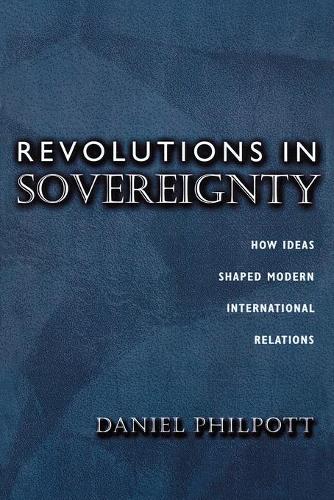
Revolutions in Sovereignty: How Ideas Shaped Modern International Relations
(Paperback)
Publishing Details
Revolutions in Sovereignty: How Ideas Shaped Modern International Relations
By (Author) Daniel Philpott
Princeton University Press
Princeton University Press
8th May 2001
United States
Classifications
Professional and Scholarly
Non Fiction
Constitution: government and the state
Political science and theory
History of ideas
320.15
Physical Properties
Paperback
352
Width 152mm, Height 235mm
510g
Description
How did the world come to be organized into sovereign states Daniel Philpott argues that two historical revolutions in ideas are responsible. First, the Protestant Reformation ended medieval Christendom and brought a system of sovereign states in Europe, culminating at the Peace of Westphalia in 1648. Second, ideas of equality and colonial nationalism brought a sweeping end to colonial empires around 1960, spreading the sovereign states system to the rest of the globe. In both cases, revolutions in ideas about legitimate political authority profoundly altered the "constitution" that establishes basic authority in the international system. Ideas exercised influence first by shaping popular identities, then by exercising social power upon the elites who could bring about new international constitutions. Swaths of early modern Europeans, for instance, arrived at Protestant beliefs, then fought against the temporal powers of the Church on behalf of the sovereignty of secular princes, who could overthrow the formidable remains of a unified medieval Christendom.In the second revolution, colonial nationalists, domestic opponents of empire, and rival superpowers pressured European cabinets to relinquish their colonies in the name of equality and nationalism, resulting in a global system of sovereign states. Bringing new theoretical and historical depth to the study of international relations, Philpott demonstrates that while shifts in military, economic, and other forms of material power cannot be overlooked, only ideas can explain how the world came to be organized into a system of sovereign states.
Reviews
"This convincing portrait show how power and ideas together shape international relations."--John Ikenberry, Foreign Affairs
Author Bio
Daniel Philpott is Assistant Professor of Political Science at the University of California, Santa Barbara. He has published on such topics as self-determination, sovereignty, and ethics and international relations.
